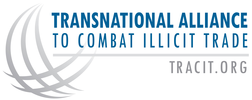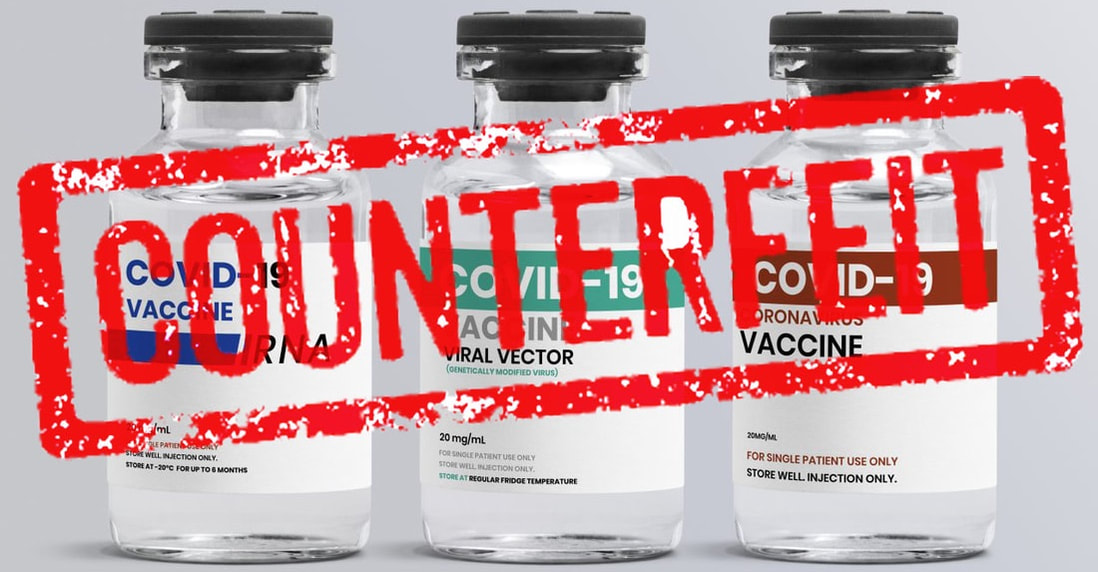|
This article was originally published by the International Institute for Strategic Studies
As the pain of vaccine shortages is being felt across Europe, Stefano Betti warns that black marketeers may be exploiting a bigger-than-expected gap between the legal supply and demand of COVID-19 vaccines. While the approval of new vaccines against COVID-19 during the last months of 2020 was celebrated around the world, law-enforcement agencies braced themselves for the emergence of a corresponding black market in such vaccines. In early December 2020, Interpol issued an alert warning its 194 member countries to expect organised crime groups to become engaged in the falsification, theft and illegal advertising of these products. Mexican gangs have reportedly already set up manufacturing laboratories for fake vaccines. Long before the onset of the pandemic, an illicit economy for medicines had prospered globally, with a wide range of illegal products traded on the black market. Some are genuine, but may be unregistered or unlicensed. These are often ineffective – for example, because they have been smuggled without respecting storage requirements. Counterfeit medicines are the most dangerous and potentially life-threatening, especially when they contain the wrong active ingredient or the wrong amount thereof. Although we do not (yet) have data about the health risks posed by counterfeit vaccines, there is no reason to suppose that these will be less harmful than falsified medical products in general. But the consequences of the development of a black market for vaccines are potentially more far-reaching. Public-health and social consequences Despite warnings that vaccinated people might continue to spread the virus, many of those who have been inoculated may entertain a false sense of security and feel more inclined to disregard social distancing and other protective measures against the pandemic. If they have been inoculated with an illegal (and ineffective) vaccine, the risk of spreading the virus will be even greater. Moreover, when fake vaccines are supplied by criminal organisations that have actively supported impoverished communities during the pandemic, like the Mexican case mentioned above, people may be even more inclined to accept the vaccines as effective, as they come from a source that they consider trustworthy. The severity of the public-health impact generated by the above will clearly depend on the extent to which the illegal trade in vaccines will expand in the near future. Its size will, in turn, depend on the ability of governments to roll out speedy and comprehensive inoculation campaigns. In the European Union, there are indications that this objective will not be achieved any time soon. As three major pharmaceutical companies recently announced severe production shortfalls, black marketeers may be exploiting a bigger-than-expected gap between legal supply and demand. The appeal of the illegal market may be particularly strong in developing countries. According to a recent study by the Economist Intelligence Unit, ‘in poorer economies, widespread vaccination coverage will not be achieved before 2023, if at all’. The widespread and anxiety-generating belief − whether or not backed by scientific evidence − that some new strains of the virus are more contagious or lethal than previous ones may also prompt people to seek an ‘easy fix’ for as long as official channels remain unavailable. Beyond creating a public-health risk, a sizeable black market for vaccines may have wider social impacts. The anti-vax community is likely to trumpet reports of serious health conditions associated with inoculations without necessarily conducting in-depth inquiries into whether the vaccines in question were genuine or fake. Even when they do not cause any health problems, smuggled vaccines whose effectiveness has been compromised may feed conspiracy theories premised on the collusion between money-hungry big pharma companies and depraved political establishments. The veil of confidentiality that largely wraps the contractual documents between governments and pharmaceutical companies is only set to reinforce such ideas. Protecting the integrity of supply chains Urgent and sustained action is needed to address current supply shortages. This is no easy task. Even if leading pharmaceutical companies manage to quickly return to full-speed manufacturing levels, delivery outcome is likely to reduce the overall appeal of the black market only marginally, at least in the short-term. At the same time, requests by some governments for the World Trade Organization to exceptionally suspend the global patent regime in relation to COVID-19 vaccines, which would pave the way for the production of generic products, are met with the resolute opposition of the EU and the United States. But even if the production of generic medicines could run at full steam, the sheer number of jabs needed to ensure global ‘herd immunity’ suggests that the black market is not likely to lose its raison d’être in the foreseeable future. It is thus necessary to double down on efforts to disrupt counterfeit operations and mitigate the risk that genuine products are diverted from supply chains. These often involve several stages and intermediaries. Various traceability solutions, such as radio-frequency identification technologies, do offer important monitoring tools, for instance in the event of a criminal group hijacking a vaccine-transporting truck. But technology only provides part of the answer. Perhaps more than anything else, the recognition is needed that each supply chain has its own characteristics, types and levels of vulnerability. Arguably, for example, it is easier to monitor the movement of vaccines requiring special storage facilities as transportation will only be assured by a small number of highly specialised delivery services. By contrast, vaccines whose conservation is less demanding may be entrusted to a wider spectrum of logistical companies, which may in turn subcontract their services. The more a supply chain is fragmented, the more intermediaries are involved and the more opportunities for diversion are created. Conducting meticulous risk assessments should be the starting point for any serious attempt to protect the integrity of supply chains. Some countries are coming up with imaginative solutions. South Africa has decided to store vaccines in a secret place to prevent theft. But such measures only cover one segment of the supply chain and, as security experts often repeat, a system is only as secure as its weakest link. Hospitals appear to be particularly problematic. In 2014, the academic research centre Transcrime drew attention to the role of organised criminal groups in the theft of medicines from Italian healthcare infrastructure. Recently, Italian investigators have been searching for mismatches between the official records of vaccines delivered to certain hospitals and the number of doses effectively administered. The police are also trying to determine if the vaccine drops left on the bottom of used vials may have been collected for sale on the black market. Reportedly, the administrators of some dark-web market places have discouraged use of their platforms for the sale of illegal vaccines. Paradoxical though it may seem, it appears that this self-restraint is not so much a result of a concern for consumers’ well-being as it is an attempt to avoid heightened media and law-enforcement attention during the current health emergency. Role of corruption and security implications Even if the sale of illegal vaccines does not take root on the dark web, all the conditions are in place for a booming illicit market, both online and offline. In many countries, corruption is often what makes supply chains susceptible to criminal infiltration – whether in the form of bribes offered to employees of manufacturing and transport companies, or collusive relationships between smugglers and hospital personnel (e.g. nurses, doctors, administrative staff), etc. Generally speaking, it can be argued that a black market for vaccines will find particularly fertile ground in countries with weak governmental structures and a poor record of preventing corruption in public life. Without adequate responses, the effects may be felt on many fronts. In addition to being a multiplier factor on infection rates, a flourishing underground economy for vaccines would be a gift to all sorts of extremists bent on spreading conspiratorial narratives, further exacerbating the fractured lines of our polarised societies. Last but not least, a thriving black market in vaccines may have a destabilising effect in institutionally fragile and politically volatile contexts. Where the illicit economy already plays a major role in sustaining local armed groups, the proceeds generated by the sale of illegal vaccines may act as a further catalyst towards the disruption of delicate power balances, the fuelling of active conflicts or the re-igniting of dormant ones. Stefano Betti Deputy Director-General, TRACIT |
About tracit talking pointsTRACIT Talking Points is a channel we’ve opened to comment on current trends and critical issues. This blog showcases articles from our staff and leadership, along with feature stories from our partners in the private sector and thought-leaders from government and civil society. Our aim is to deepen the dialogue on emerging policy issues and enforcement measures that can be deployed against illicit trade.
Categories
All
Archives
February 2024
|
|
Transnational Alliance to Combat Illicit Trade (TRACIT) is an independent, non-governmental, not-for-profit organisation under US tax code 501(c)(6).
© COPYRIGHT 2024. ALL RIGHTS RESERVED. |
Follow us
|

